Health
Presidential depression and Abraham Lincoln’s struggle with ‘melancholy’: What historians know
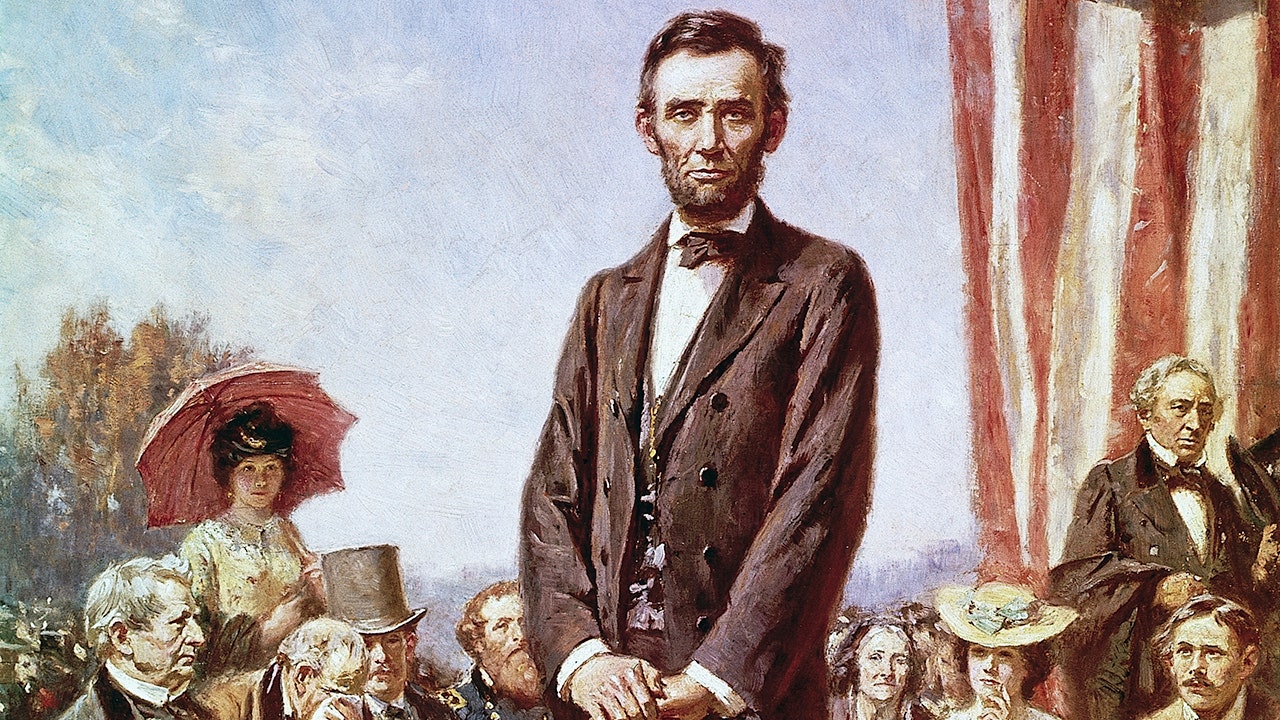
He is perhaps best known for his honesty — but a lesser-known fact about Abraham Lincoln is that the 16th president of the United States battled severe depression during his lifetime.
Dr. Chris Tuell, a clinical psychotherapist and a chemical and behavioral addiction specialist at the University of Cincinnati College of Medicine, has studied Lincoln’s mental health struggles extensively.
“Though the history books play a significant role in our perception and understanding of the ‘rail splitter’ from Illinois, it often becomes easy for us to forget that Abraham Lincoln was very human,” Tuell told Fox News Digital.
HOW ABRAHAM LINCOLN WAS SAVED BY HIS SON TAD — AND GAVE US ‘A HOLIDAY TRADITION’ TO REMEMBER
“Lincoln led this nation through its worst crisis, while at the same time battling his own internal war of chronic depression.”
Here’s what to know.
Abraham Lincoln, 16th president of the United States, is depicted in this painting at the Gettysburg Address. (Painting by J.L.G. Ferris)
Signs of Lincoln’s depression
At age 32, in a letter to John Stuart in 1841, Lincoln wrote, “I am now the most miserable man living. If what I feel were equally distributed to the whole human family, there would not be one cheerful face on earth. Whether I shall ever be better, I cannot tell; I awfully forebode I shall not; to remain as I am is impossible.”
Lincoln scholars have “clear evidence” that he suffered from depressive episodes beginning in his 20s, Tuell noted.
ON THIS DAY IN HISTORY, FEBRUARY 12, 1809, ABRAHAM LINCOLN IS BORN IN KENTUCKY
“Lincoln’s school teacher, Mentor Graham, stated, ‘Lincoln told me that he felt like committing suicide often,’” Tuell said.
“Law partner and biographer William Herndon stated, ‘He was a sad-looking man, gloomy and melancholic. His melancholy dripped from him as he walked.’”
Contributing factors to Lincoln’s depression
The president’s mental health condition can be attributed to both genetics and traumatic experiences, according to the book “Lincoln’s Melancholy” by Joshua Wolf Shenk.
Lincoln is said to have had a family history of depression.
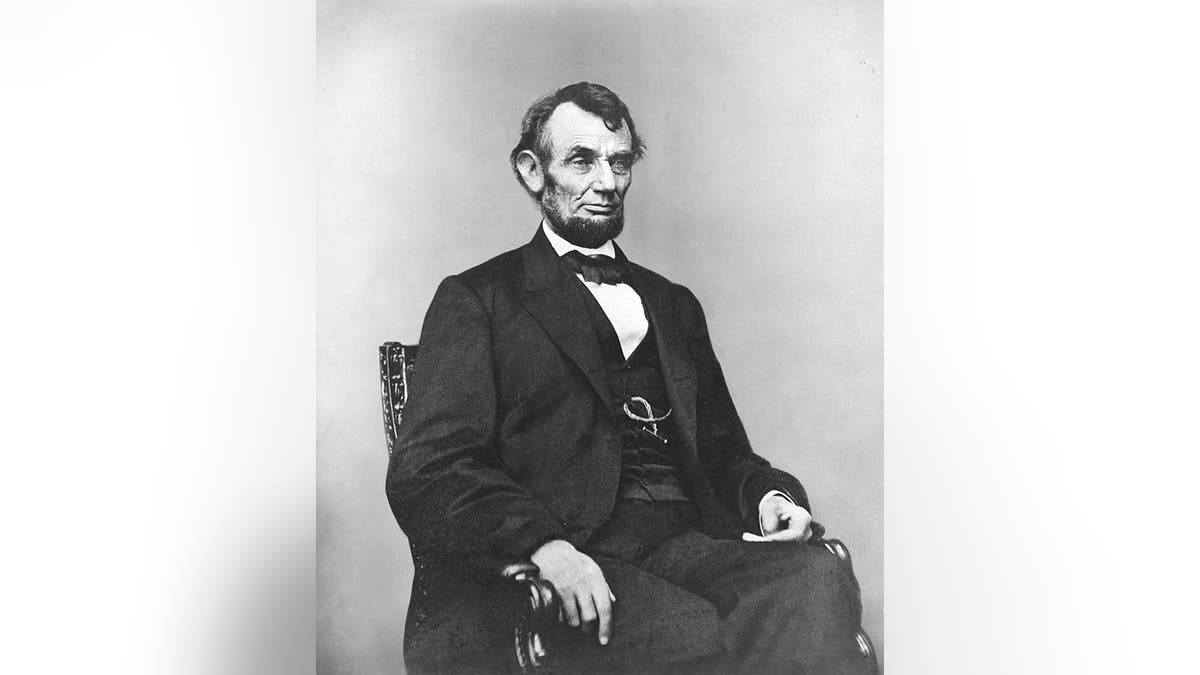
Abraham Lincoln, 16th president of the U.S., battled severe depression. (Library of Congress Prints and Photographs)
“Historical records indicate that Lincoln’s mother and father were disposed to melancholy and that one side of the family ‘was thick with mental disease,’” said Tuell.
“Bereavement in childhood can be one of the most significant factors in the development of depressive illness in later life.”
As a child, Lincoln lost several close family members.
After his brother died in infancy, Lincoln’s mother, aunt and uncle all died when he was just 9 years old. A decade later, his sister died while delivering a stillborn infant.
Later, Lincoln experienced the loss of his first love, Ann Rutledge, in 1835.
As a father, he experienced the death of two young sons, Eddie and Willie.
AFTER THEY LEAVE THE WHITE HOUSE, WHAT SHOULD AMERICA DO WITH OUR EX-PRESIDENTS?
“According to mental health professionals, bereavement in childhood can be one of the most significant factors in the development of depressive illness in later life,” Tuell said.
Dr. Marc Siegel, clinical professor of medicine at NYU Langone Medical Center and a Fox News medical contributor, said that Lincoln’s melancholy may have been tied to his “intellectual prowess and [his tendency to] see and feel things deeply.”
How Lincoln dealt with depression
Before the age of psychotherapy and antidepressant medications, Lincoln learned to live with his depressive disposition, Tuell said.
“He would frequently use humor and storytelling to elevate his mood and distract himself from his depression,” the psychologist told Fox News Digital.
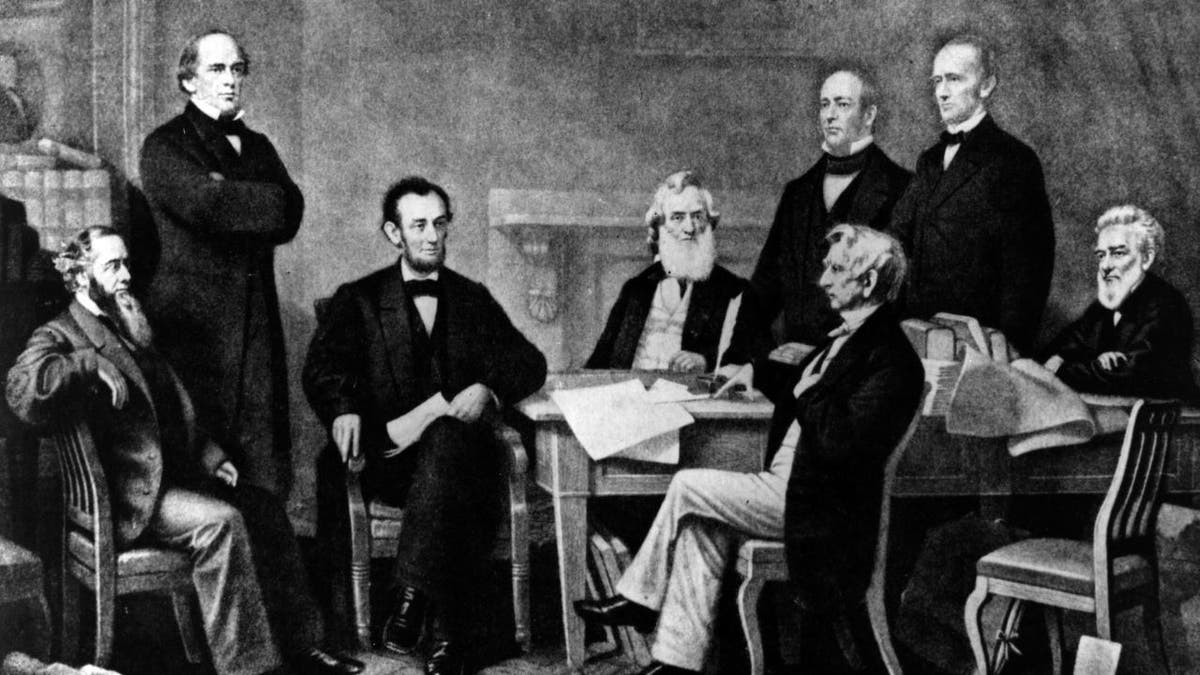
Abraham Lincoln is depicted at the signing of the Emancipation Proclamation, which gave enslaved people their freedom. (Hulton Archive/Getty Images)
“Only his closest friends had any insight concerning the extent of his condition.”
In a time period when mental health treatment was not available, Tuell noted that learning how to manage his life with his depression was Lincoln’s only choice.
“The only other option would have been for him to succumb to these adversities,” he said.
“He managed to overcome it and the Civil War to become our greatest president, by most people’s estimation.”
“It does not appear that it was in the 16th president’s persona to acquiesce. Lincoln persevered and served this country eloquently.”
Siegel noted that in Lincoln’s time, depression was referred to as “melancholy” and was typically treated with opium, a highly addictive narcotic drug that is extracted from the poppy plant.
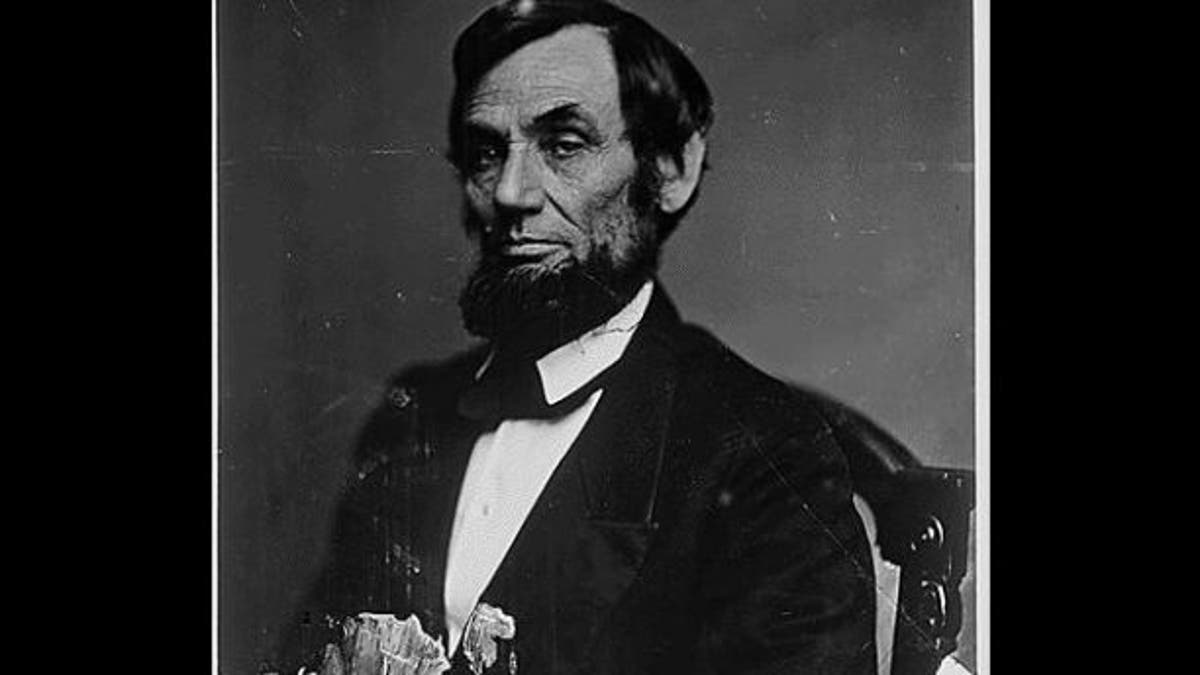
“It does not appear that it was in the 16th president’s persona to acquiesce,” a psychologist said. “Lincoln persevered and served this country eloquently.” (AP)
Historians have noted that Lincoln’s sons brought him periods of happiness despite his ongoing depression.
“We are so used to seeing Abraham Lincoln looking depressed and sad, that we forget — and the historical record is clear on this — he would break down in laughter when playing with his boys or observing the mayhem they created,” Raymond Arroyo, a Fox News contributor and bestselling author, previously told Fox News Digital.
He is the author of the book, “The Magnificent Mischief of Tad Lincoln,” part of his Turnabout Tales series of books.
What to know about depression
Depressive disorders affect approximately 18.8 million American adults or about 9.5% of the U.S. population age 18 and older in a given year, according to the National Institute of Mental Health.
There are different types of depressive disorders, according to Tuell.
These may include major depression, dysthymia (an ongoing, low-grade depression) and bipolar (mood swings of depression and mania).
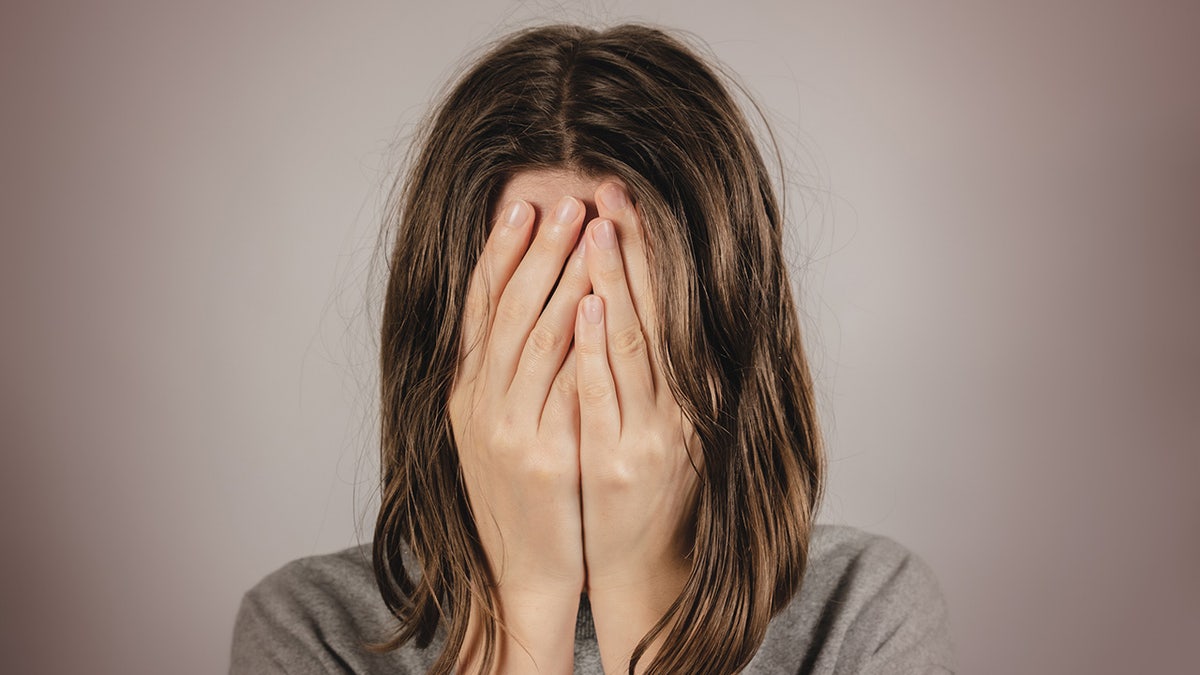
Depressive disorders affect approximately 18.8 million American adults or about 9.5% of the U.S. population age 18 and older in a given year, according to the National Institute of Mental Health. (iStock)
“Depression can affect every aspect of one’s life — physical health, sleep [habits], eating habits, job and your relationships with friends and family,” said Tuell. “It affects thoughts, feelings and behaviors.”
While depression is one of the most serious mental health issues facing people today, Tuell noted that it’s also one of the most treatable.
Lincoln’s perseverance in the face of severe depression was something to be admired, Tuell and Siegel agreed.
“We can only speculate what Lincoln would say or do about our current state of political affairs, or even what thoughts he may have toward the new millennium’s understanding of depression and mental health,” Tuell said.
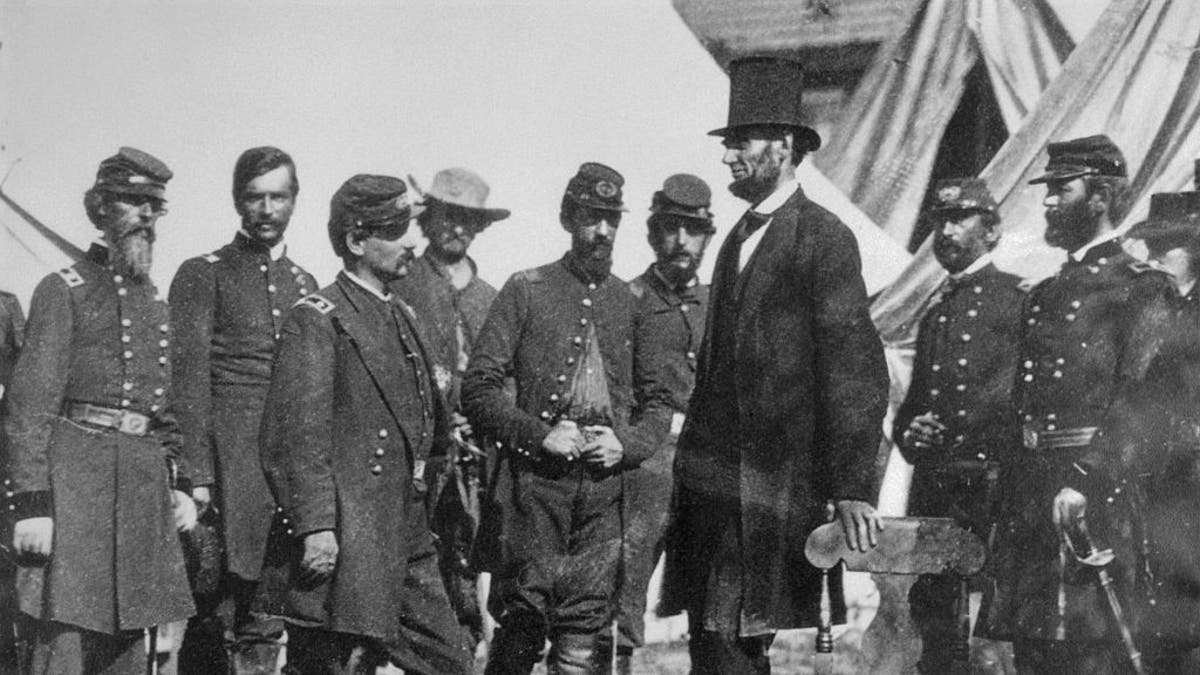
President Abraham Lincoln with General George B. McClellan at his headquarters at Antietam, Oct. 3, 1862. From left: General George W. Morell, Colonel Alexander S. Webb, General McClellan, scout Adams, Dr. Jonathan Letterman, unidentified officer, President Lincoln, Colonel Henry Hunt, General Fitz, John Porter, unidentified officer. (Getty Images)
“But now, some 159 years later, Lincoln’s historical persona continues to belong to the ages.”
Lincoln believed in the human spirit and spoke of the role people must have toward one another, Tuell noted.
“This was no more clearly expressed than through Lincoln’s own words, ‘With malice toward none; with charity for all,’” he said.
CLICK HERE TO SIGN UP FOR OUR HEALTH NEWSLETTER
Lincoln’s battle with depression can be regarded as an “inspiration to all who suffer from this dreaded disease or feel stigmatized by it,” Siegel added.
“He managed to overcome it and the Civil War to become our greatest president, by most people’s estimation.”
For more Health articles, visit www.foxnews.com/health.

Health
What Happens If You Eat Eggs Every Day? Nutritionists Share the Benefits

Sign Up
Create a free account to access exclusive content, play games, solve puzzles, test your pop-culture knowledge and receive special offers.
Already have an account? Login
Forgot your password?
Get back to the Sign In
Use left and right arrow keys to navigate between menu items.
Use escape to exit the menu.
Health
Ask a doctor: ‘I swallowed a bug — now what should I do?'
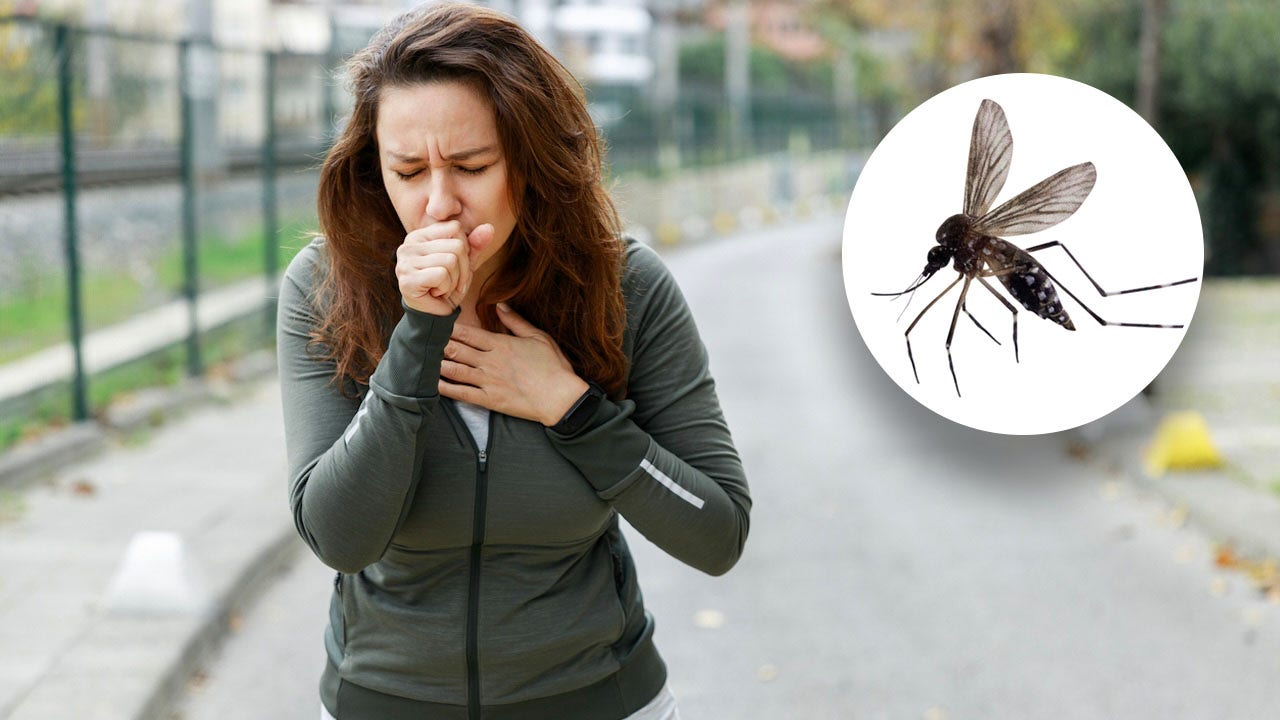
Most people have experienced that moment of discomfort when they realize a bug has wound up where it shouldn’t be — in their windpipe.
That includes Taylor Swift, who on more than one occasion has accidentally swallowed a bug while performing on stage in front of thousands of people.
It can be a startling and somewhat disgusting occurrence — but is this dangerous, or just a nuisance?
LOCAL DENGUE FEVER CASES CONFIRMED IN FLORIDA KEYS, SPREAD BY MOSQUITO BITES
Dr. Raj Dasgupta, a quadruple board-certified physician in California, shared with Fox News Digital the true impacts of accidentally swallowing a bug, and the best thing to do if it happens.
“Swallowing a bug can often happen accidentally when you’re eating or drinking outside, or if a bug flies into your mouth,” Dasgupta, who serves as chief medical advisor for Fortune Recommends, told Fox News Digital via email.
Dr. Raj Dasgupta, a quadruple board-certified physician in California, discussed the impact of accidentally swallowing a bug — and the best thing to do if it happens. (Sleepoplis)
“It can also happen if you’re talking or laughing outdoors. Sometimes it might even happen indoors if bugs are in your food or drink and you don’t realize it.”
ASK A DOCTOR: ‘HOW CAN I PREVENT SCARRING FROM BUG BITES AND POISON IVY?’
Swallowing a bug is usually not dangerous, Dasgupta noted.
“The stomach’s digestive acids usually break down the bug, and it is passed out of the body without causing harm,” he said.
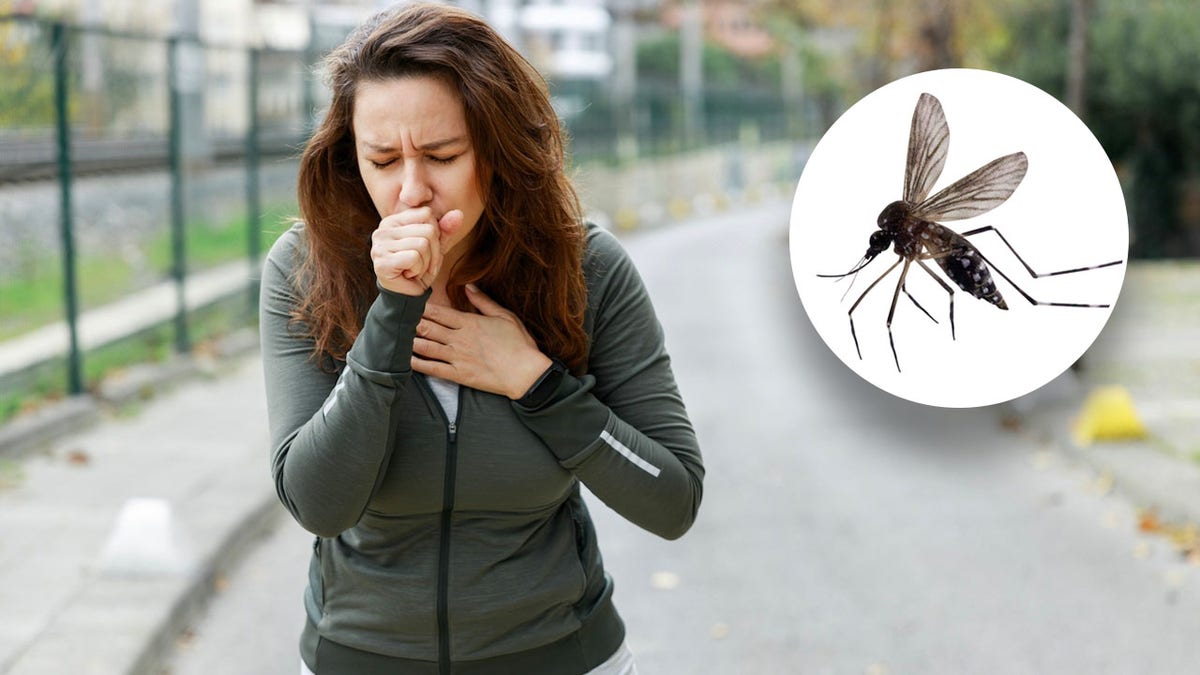
“Swallowing a bug can happen accidentally when you’re eating or drinking outside, or if a bug flies into your mouth,” the doctor told Fox News Digital. (iStock)
If the bug carries harmful bacteria or parasites, however, it could cause gastrointestinal issues or allergic reactions, according to the doctor.
The type of bug can make a difference, he said.
“Bugs like beetles or ants are less of a concern, but bugs that are known to spread diseases — such as mosquitoes — might be riskier.”
If you happen to swallow a bug, drinking some water can help wash it down, Dasgupta said.

Taylor Swift has announced the accidental swallowing of bugs, mid-concert, on more than one occasion. (Marcelo Endelli/TAS23/Getty Images for TAS Rights Management)
“If you start feeling sick, like abdominal pain, vomiting or nausea, keep an eye on your symptoms,” the doctor said.
If you have severe stomach pain, ongoing vomiting, trouble breathing, or swelling, rash or itching, Dasgupta said to see a doctor.
CLICK HERE TO SIGN UP FOR OUR HEALTH NEWSLETTER
“If you know the bug could have diseases or if you have health conditions that might complicate things, it’s a good idea to get checked out to be safe,” he added.
For more Health articles, visit www.foxnews/health
Some bugs — including grasshoppers, beetles, termites, mealworms and even stink bugs — are actually considered edible in certain countries, and are prepared and eaten as part of meals, according to WebMD’s website.
Health
“I’m a Dietitian, and Here’s Why an Overly Restrictive Diet Can Backfire”

Sign Up
Create a free account to access exclusive content, play games, solve puzzles, test your pop-culture knowledge and receive special offers.
Already have an account? Login
Forgot your password?
Get back to the Sign In
Use left and right arrow keys to navigate between menu items.
Use escape to exit the menu.
-

 World1 week ago
World1 week agoOne dead after car crashes into restaurant in Paris
-

 Midwest1 week ago
Midwest1 week agoMichigan rep posts video response to Stephen Colbert's joke about his RNC speech: 'Touché'
-

 News1 week ago
News1 week agoVideo: Young Republicans on Why Their Party Isn’t Reaching Gen Z (And What They Can Do About It)
-

 Movie Reviews1 week ago
Movie Reviews1 week agoMovie Review: A new generation drives into the storm in rousing ‘Twisters’
-

 News1 week ago
News1 week agoIn Milwaukee, Black Voters Struggle to Find a Home With Either Party
-

 Politics1 week ago
Politics1 week agoFox News Politics: The Call is Coming from Inside the House
-

 News1 week ago
News1 week agoVideo: J.D. Vance Accepts Vice-Presidential Nomination
-

 World1 week ago
World1 week agoTrump to take RNC stage for first speech since assassination attempt















